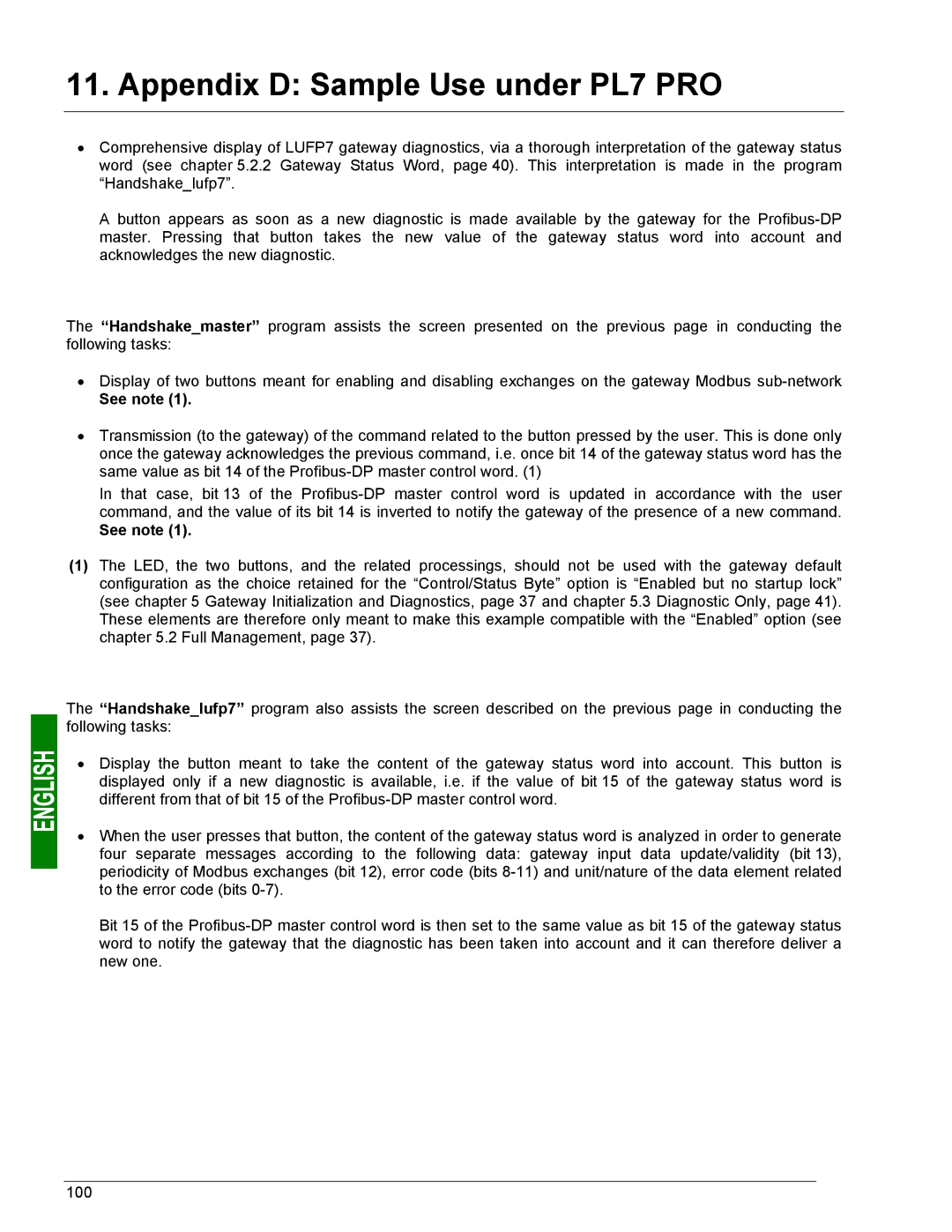
11. Appendix D: Sample Use under PL7 PRO
•Comprehensive display of LUFP7 gateway diagnostics, via a thorough interpretation of the gateway status word (see chapter 5.2.2 Gateway Status Word, page 40). This interpretation is made in the program “Handshake_lufp7”.
A button appears as soon as a new diagnostic is made available by the gateway for the
The “Handshake_master” program assists the screen presented on the previous page in conducting the following tasks:
•Display of two buttons meant for enabling and disabling exchanges on the gateway Modbus
See note (1).
•Transmission (to the gateway) of the command related to the button pressed by the user. This is done only once the gateway acknowledges the previous command, i.e. once bit 14 of the gateway status word has the same value as bit 14 of the
In that case, bit 13 of the
See note (1).
(1)The LED, the two buttons, and the related processings, should not be used with the gateway default configuration as the choice retained for the “Control/Status Byte” option is “Enabled but no startup lock” (see chapter 5 Gateway Initialization and Diagnostics, page 37 and chapter 5.3 Diagnostic Only, page 41). These elements are therefore only meant to make this example compatible with the “Enabled” option (see chapter 5.2 Full Management, page 37).
The “Handshake_lufp7” program also assists the screen described on the previous page in conducting the following tasks:
• Display the button meant to take the content of the gateway status word into account. This button is displayed only if a new diagnostic is available, i.e. if the value of bit 15 of the gateway status word is different from that of bit 15 of the
•When the user presses that button, the content of the gateway status word is analyzed in order to generate four separate messages according to the following data: gateway input data update/validity (bit 13), periodicity of Modbus exchanges (bit 12), error code (bits
Bit 15 of the
100
